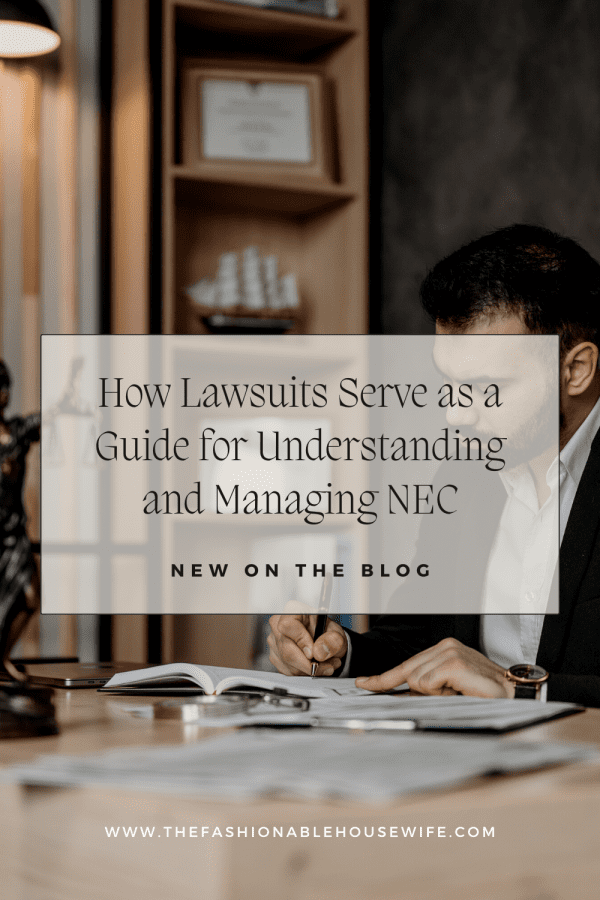
Necrotizing enterocolitis (NEC) poses a grave threat to newborns, particularly premature infants, leading to inflammation in the intestines and severe complications.
As medical understanding of NEC deepens, lawsuits against baby formula manufacturers are shedding light on the intricate relationship between infant formula and NEC. Drugwatch notes that there are 290 lawsuits pending in the NEC litigation as of November 2023. This highlights the intense scrutiny and urgency surrounding the issue.
In this article, we will discuss how ongoing legal proceedings serve as a crucial guide in understanding and managing NEC. We will offer insights into its causes, risks, and potential preventative measures.
The NEC Landscape
Necrotizing enterocolitis (NEC) unfolds as a harrowing medical landscape marked by inflammation and tissue damage in the intestines of newborns. Lawsuits against baby formula manufacturers provide narratives of infants grappling with the profound complications of NEC, illustrating the urgency for comprehensive management strategies.
From abdominal pain to feeding difficulties and organ problems, these legal cases offer a glimpse into the challenges faced by infants and their families. This underscores the critical need for medical advancements and enhanced understanding to navigate this complex terrain.
Formula Ingredients and NEC
The intricate link between baby formula and NEC takes center stage in ongoing lawsuits, specifically those targeting cow’s milk-based formulas like Similac. Insights garnered from legal proceedings contribute to the ongoing scientific discourse, examining how formula ingredients may play a role in triggering NEC.
These lawsuits prompt a closer look at the composition of infant formulas. It has sparked discussions among researchers, healthcare professionals, and parents about the potential impact of specific ingredients on an infant’s delicate digestive system.
Premature Infants at Risk
Lawsuits underscore the vulnerability of premature infants in the context of NEC. According to KidsHealth, infants born before 32 weeks face an increased risk of NEC. Legal narratives shed light on factors such as infections and serious illnesses that further heighten the susceptibility of preemies to NEC.
The intimate connection between prematurity, formula feeding, and NEC emerges as a critical focal point. This guides healthcare providers in implementing targeted preventive measures for this high-risk demographic.
Formula Recalls and Supply Chain Disruptions
According to an article on Parents.com, there have been many recalls of baby formula since February 2022. Multiple brands, including Similac and Enfamil, have been recalled. Many of them were recalled because of contamination concerns with Cronobacter sakazakii. It is an invasive pathogen that has been linked to neonatal infection.
The aftermath of formula recalls, exemplified by Abbott’s recall of Similac, extends beyond legal implications to impact the broader landscape of infant nutrition. Lawsuits highlight the challenges faced by families due to supply chain disruptions, emphasizing the disproportionate impact on those relying on specialized formulas.
These lawsuits highlight the struggles faced by lower-income families and the broader implications on healthcare systems. They also serve as a testament to the need for robust regulatory measures and transparent communication within the baby formula industry.
The Legal Landscape
Similac lawsuits provide a comprehensive view of the legal landscape surrounding NEC, offering detailed insights into the progression of cases against Abbott Laboratories. Parallel to Similac lawsuits, legal actions against Mead Johnson’s Enfamil reveal a comparable narrative of parents seeking accountability for infants who developed NEC.
Allegations ranging from breach of warranty to claims of negligence underscore the multifaceted nature of these legal battles. TorHoerman Law notes that plaintiffs seek justice for infants who developed NEC after consuming Similac and Enfamil through court proceedings.
The NEC lawsuit draws attention to alleged failures in warning consumers about the risks associated with dairy-based formulas. The convergence of legal claims against different formula brands contributes to a broader understanding of the industry’s collective responsibility in safeguarding infant health.
Serving Justice and Aiding Prevention
NEC lawsuits, while serving as a vehicle for justice for affected families, extend beyond legal resolutions. They become instrumental in shaping prevention strategies, urging for heightened awareness, transparency, and accountability within the baby formula industry. Legal actions underscore the need for industry stakeholders to prioritize infant well-being.
This prompts discussions around comprehensive labeling, enhanced safety protocols, and a collective commitment to preventing NEC. By navigating the legal complexities, these lawsuits contribute to a broader dialogue aimed at fostering a safer and more informed environment for vulnerable infants.
In summary, NEC lawsuits against baby formula manufacturers offer a profound lens into the complexities of infant health. This urges a collective commitment to transparency, accountability, and enhanced safety measures. These legal battles transcend mere compensation, acting as instrumental forces in shaping preventive strategies.
The narratives woven through legal proceedings underscore the imperative for comprehensive labeling, heightened awareness, and industry-wide responsibility. As families seek justice, these lawsuits pave the way for crucial dialogue, fostering a safer environment for vulnerable infants.
Ultimately, the lawsuits are propelling the industry towards a future where infant health is prioritized through informed practices and stringent regulations.








